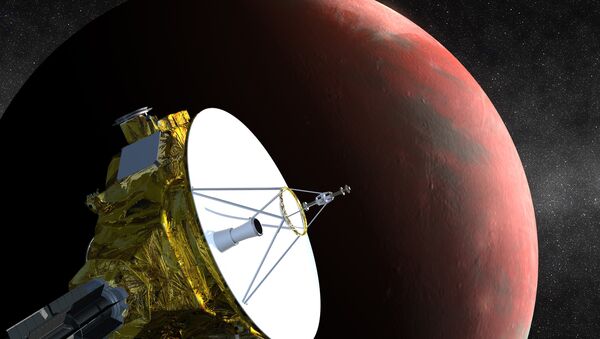MOSCOW, January 16 (Sputnik) — NASA's New Horizons spacecraft’s long-awaited encounter with Pluto has recently begun after a voyage of more than 3 billion miles, the National Aeronautics and Space Administration (NASA).
The spacecraft lined up for the final approach and should conduct first fly-by of the dwarf planet on July 14.
The distant observation of Pluto system inside the orbits of its five known moons with special piano-sized probe will start January 25 with a long-range photo shoot.
“NASA first mission to distant Pluto will also be humankind’s first close up view of this cold, unexplored world in our solar system,” director of NASA’s Planetary Science Division Jim Green was quoted.
On December 7 US New Horizons spacecraft has come out of hibernation, specialists at NASA then were set to spend several weeks ensuring that the spacecraft systems operate properly, testing computer-command sequences that will guide New Horizons to the Pluto system.
According to NASA, intensive studies of the dwarf planet will begin in the spring when the instruments aboard the spacecraft are able to provide image with higher resolutions than the most powerful telescopes on our planet.
Until then, in the first approach phase, New Horizons will gather data on the interplanetary environment such as dust-particle concentrations in the inner reaches of the Kuiper Belt or high-energy particles streaming from the sun measurements.
The New Horizons spacecraft was launched on January 19, 2006, and spent 1,873 days in hibernation, which is about two-thirds of its flight time. Hibernation was used in order to keep the spacecraft components in a better condition and to decrease the risk of system failures.

